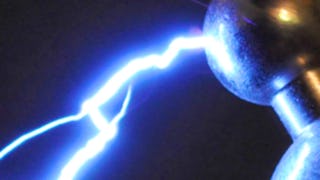- Browse
- Analyze And Model Losses In Magnetic Components
Results for "analyze+and+model+losses+in+magnetic+components"
 Status: NewNewStatus: PreviewPreview
Status: NewNewStatus: PreviewPreviewSkills you'll gain: electromagnetics, Wireless Networks, Electronic Components, Performance Tuning, Process Optimization, Design, Analysis, Mathematical Modeling
Intermediate · Course · 1 - 4 Weeks
 Status: Free TrialFree TrialR
Status: Free TrialFree TrialRRice University
Skills you'll gain: Basic Electrical Systems, Electrical Engineering, Torque (Physics), electromagnetics, Physics, Electrical Systems, Engineering Analysis, Electronics, Electronic Components, Engineering Calculations, Mechanics, Mathematical Modeling, Applied Mathematics, Problem Solving, Calculus, Advanced Mathematics, Mathematical Theory & Analysis, Differential Equations, Trigonometry, Integral Calculus
4.7·Rating, 4.7 out of 5 stars264 reviewsIntermediate · Specialization · 3 - 6 Months
 Status: Free TrialFree TrialL
Status: Free TrialFree TrialLL&T EduTech
Skills you'll gain: Electrical Systems, Electric Power Systems, Electrical Power, Control Systems, Electrical Equipment, Three-Phase, High Voltage, Wiring Diagram, Systems Analysis, Simulation and Simulation Software, Electrical Engineering, Network Analysis, Engineering Analysis, Numerical Analysis, Low Voltage, Mathematical Modeling, Simulations, Power Electronics, Graph Theory, Differential Equations
4.5·Rating, 4.5 out of 5 stars40 reviewsIntermediate · Specialization · 1 - 3 Months
 Status: Free TrialFree TrialU
Status: Free TrialFree TrialUUniversity of Colorado Boulder
Skills you'll gain: Power Electronics, Electrical Engineering, electromagnetics, Electronic Components, Mathematical Modeling, Thermal Management, Engineering Analysis, Engineering Design Process, Engineering Calculations
4.8·Rating, 4.8 out of 5 stars163 reviewsIntermediate · Course · 1 - 4 Weeks
 Status: Free TrialFree TrialU
Status: Free TrialFree TrialUUniversity of Colorado Boulder
Skills you'll gain: Power Electronics, Electronic Systems, Control Systems, Electrical Engineering, electromagnetics, Electrical Power, Electronics Engineering, Electronics, Engineering Analysis, Simulations, Simulation and Simulation Software, Mathematical Modeling, Systems Analysis, Electrical Systems, Computer-Aided Design, Matlab, Technical Design, Systems Design, Verification And Validation, Design Specifications
Build toward a degree
4.7·Rating, 4.7 out of 5 stars159 reviewsIntermediate · Specialization · 3 - 6 Months
 Status: NewNewC
Status: NewNewCCoursera
Skills you'll gain: Experimentation, Business Metrics, Data Storytelling, Return On Investment, Model Evaluation, Dashboard, Performance Measurement, Business Valuation, Key Performance Indicators (KPIs), A/B Testing, Performance Analysis, Analysis, Product Management, Machine Learning, Financial Analysis, Business, Stakeholder Communications, Sample Size Determination, Power Electronics
Intermediate · Course · 1 - 4 Weeks
What brings you to Coursera today?
 Status: PreviewPreviewU
Status: PreviewPreviewUUniversidad de los Andes
Skills you'll gain: Electric Power Systems, Electrical Power, Electrical Systems, Energy and Utilities, High Voltage, Electrical Safety, Sustainability Standards, Sustainable Systems, Sustainable Development, Sustainable Technologies, Reliability
4.8·Rating, 4.8 out of 5 stars129 reviewsBeginner · Course · 1 - 4 Weeks
 Status: NewNew
Status: NewNewSkills you'll gain: Earned Value Management, Performance Metric, Project Controls, Variance Analysis, Scheduling
Beginner · Course · 1 - 4 Weeks
 Status: PreviewPreviewG
Status: PreviewPreviewGGeorgia Institute of Technology
Skills you'll gain: Electrical Power, Electrical Engineering, Basic Electrical Systems, Electronics, Power Electronics, Electronic Components, Engineering Analysis, Mathematical Modeling, Engineering Calculations, Plot (Graphics), Verification And Validation
4.7·Rating, 4.7 out of 5 stars768 reviewsIntermediate · Course · 1 - 3 Months
 Status: Free TrialFree TrialI
Status: Free TrialFree TrialIIllinois Tech
Skills you'll gain: Model Evaluation, Data Validation, Regression Analysis, Feature Engineering, Plot (Graphics), Statistical Modeling, Data Transformation, Correlation Analysis, Statistical Analysis, R Programming, Time Series Analysis and Forecasting, Statistical Inference, Statistical Hypothesis Testing
Build toward a degree
4.9·Rating, 4.9 out of 5 stars9 reviewsIntermediate · Course · 1 - 4 Weeks
 Status: PreviewPreviewG
Status: PreviewPreviewGGeorgia Institute of Technology
Skills you'll gain: Basic Electrical Systems, Electronic Components, Electrical Systems, Electronic Systems, Electrical Engineering, Engineering Analysis, Electronics, Engineering Calculations, Physics, Schematic Diagrams
4.5·Rating, 4.5 out of 5 stars1.5K reviewsMixed · Course · 1 - 3 Months
 Status: Free TrialFree TrialL
Status: Free TrialFree TrialLL&T EduTech
Skills you'll gain: Electrical Systems, Electric Power Systems, Electrical Power, Electrical Equipment, Three-Phase, High Voltage, Wiring Diagram, Electrical Engineering, Systems Analysis, Engineering Analysis, Mathematical Modeling, Simulation and Simulation Software, Simulations, Network Analysis
4.3·Rating, 4.3 out of 5 stars23 reviewsIntermediate · Course · 1 - 4 Weeks
In summary, here are 10 of our most popular analyze+and+model+losses+in+magnetic+components courses
- RF/Microwave Design - Impedance Matching: Coursera
- Introduction to Electricity and Magnetism: Rice University
- Industrial Power Systems Analysis and Stability: L&T EduTech
- Magnetics for Power Electronic Converters: University of Colorado Boulder
- Modeling and Control of Power Electronics: University of Colorado Boulder
- Measure ML Impact & Business Value: Coursera
- Análisis de Sistemas Eléctricos y Transición Energética: Universidad de los Andes
- Analyze Project Performance: Earned Value: Coursera
- Linear Circuits 2: AC Analysis : Georgia Institute of Technology
- Model Diagnostics and Remedial Measures: Illinois Tech










